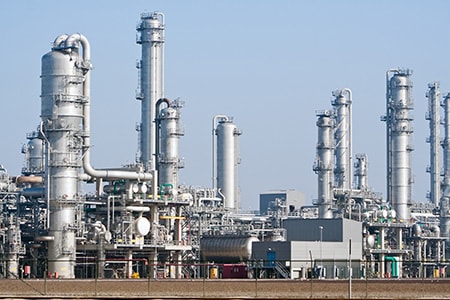
Unveiling the Distinction: Petroleum vs. Petrochemicals
In today's ever-evolving industrial landscape, the terms petroleum and petrochemicals are frequently used but often misunderstood. While both are derived from hydrocarbons and play crucial roles in various industries, they possess distinct characteristics and serve different purposes. This article aims to shed light on the key differences between petroleum and petrochemicals, providing a comprehensive understanding of their unique attributes and applications.
- Origins and Composition:
Petroleum:
Petroleum, also known as crude oil, is a naturally occurring fossil fuel formed from the remains of ancient marine organisms. It consists of a complex mixture of hydrocarbons, including alkanes, cycloalkanes, and aromatic compounds. The composition of petroleum varies depending on its source, with different regions yielding oils of varying densities and chemical compositions.
Petrochemicals:
Petrochemicals, on the other hand, are chemical compounds derived from petroleum through a refining process known as petrochemical cracking or steam cracking. This process breaks down complex hydrocarbons into simpler molecules, such as ethylene, propylene, benzene, and toluene. These building blocks serve as the foundation for the production of a wide range of chemical products.
- Applications and Industries:
Petroleum:
Petroleum finds extensive use in the energy sector, primarily as a fuel source for transportation, power generation, and heating. It serves as the raw material for the production of gasoline, diesel, jet fuel, and heating oil. Additionally, petroleum is crucial in the manufacturing of lubricants, waxes, asphalt, and various petrochemical feedstocks.
Petrochemicals:
Petrochemicals have a diverse range of applications across industries. They serve as the building blocks for the production of plastics, synthetic fibers, rubber, detergents, solvents, fertilizers, pharmaceuticals, and countless other products. Petrochemical derivatives are integral to the manufacturing of everyday items, including packaging materials, clothing, electronics, and automotive components.
- Processing and Refining:
Petroleum:
The refining process of petroleum involves distillation, where crude oil is heated and separated into different fractions based on their boiling points. These fractions, including gasoline, diesel, and kerosene, undergo further treatment and processing to meet specific industry requirements. Refineries also employ various techniques, such as catalytic cracking and hydrocracking, to convert heavier fractions into lighter, more valuable products.
Petrochemicals:
The production of petrochemicals involves the conversion of specific fractions obtained during the refining process. Petrochemical cracking breaks down larger hydrocarbon molecules into smaller ones, enabling the production of ethylene, propylene, and other key building blocks. These intermediates undergo further chemical reactions, such as polymerization, to create a wide array of petrochemical derivatives.
- Environmental Impact:
Petroleum:
The extraction, transportation, and combustion of petroleum-based fuels contribute to environmental challenges, including air pollution, greenhouse gas emissions, and climate change. However, advancements in technology and the adoption of cleaner energy sources are gradually mitigating these concerns.
Petrochemicals:
Petrochemical production also poses environmental challenges, particularly in terms of waste generation and the release of harmful byproducts. However, the industry has made significant strides in implementing sustainable practices, such as recycling and developing more eco-friendly processes, to minimize its ecological footprint.
Conclusion:
In summary, petroleum and petrochemicals are distinct entities with different origins, compositions, applications, and environmental impacts. While petroleum primarily serves as a fuel source, petrochemicals are the building blocks for a vast array of chemical products. Understanding these differences is crucial for comprehending the intricate relationship between these two vital components of the modern industrial world.


Average Rating